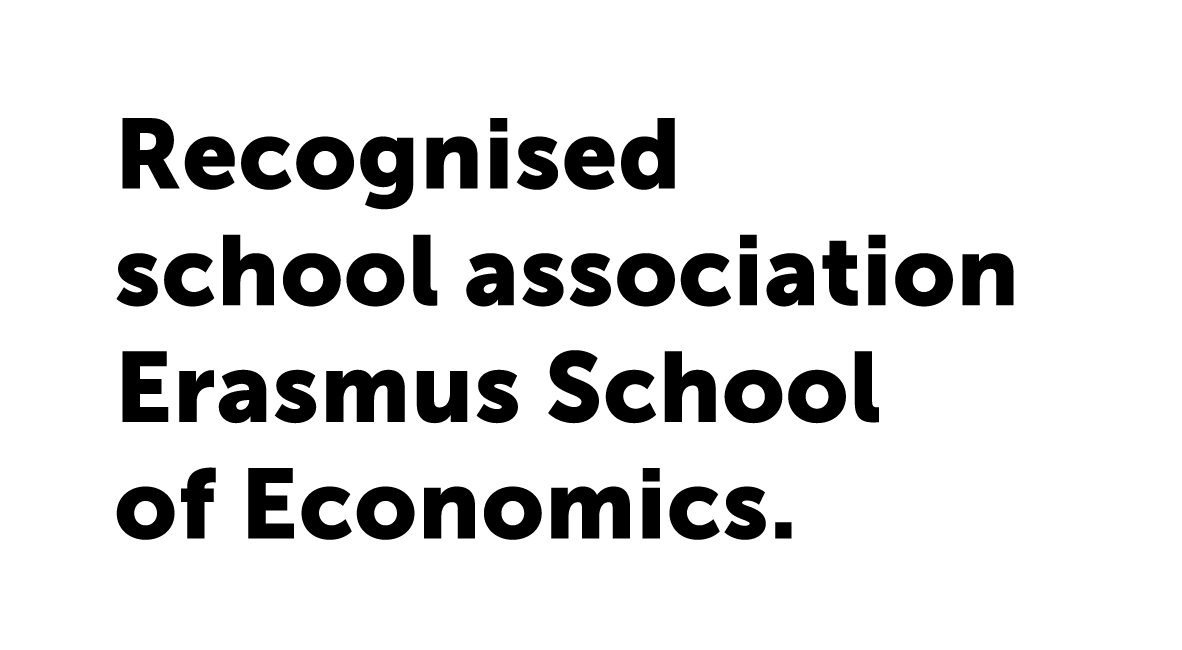FAECTOR Consultancy Project (FCP)
The FAECTOR Consultancy Project (FCP) offers you the opportunity to help non-profit organisations and small companies with data analytics projects, while at the same time allowing you to put your econometric knowledge into practice. You will gain valuable experience as a consultant and improve both your analytical and soft skills. You will work in teams of 5 and participate in several training sessions that will help you with the execution of the project. Additionally, you will receive professional guidance from consulting companies throughout the project. Also, note that this project is worth 2 ECTS!
The FAECTOR Consultancy Project starts at the end of March and ends just before the summer break. There is a workload of approximately 5 hours per week, including training sessions and meetings with your guiding consultant. For the complete schedule and more detailed information on the cases, the participating companies and the trainings a student manual will be made available at the time.
The description of the participating companies is:
AIESEC case description:
AIESEC is a global organisation with a presence in 100+ countries worldwide, organising exchange and internship opportunities for young people to explore and develop their leadership potential. It is a non-political, independent, not-for-profit organization run by students and recent graduates of institutions of higher education. Its members are interested in world issues, leadership and management. Since its inception in 1944, over 1000000 young people have participated in one of its programs.
In this project, you will work with AIESEC's extensive dataset from 2014 to 2024. Your task is to identify the profiles of people most likely to reach “approved” status in the AIESEC pipeline and ultimately offer strategic advice to AIESEC to successfully reach more people. This case provides an excellent opportunity for master's students to apply econometric techniques on real-world data, hone analytical skills, and directly contribute to a dynamic, globally recognized organization.
CliniClowns case description:
CliniClowns is an organization dedicated to bringing joy and comfort to sick children and their families through clowning and interaction. As an organization, the goal is to receive as many donations as possible, ideally with high amounts, to help continue their important work. Over the years, significant insights have been gained into regular donors, but the question remains: what can be done to prevent them from stopping their donations?
This year, CliniClowns is seeking help to gain deeper insight into the potential of their regular donors and the likelihood that they will stop their donations. The group of donors is diverse: some donate regularly in small amounts, while others make larger donations. Some donors stop sooner than others. The challenge is to determine how to ensure they continue their contributions.
Goal of the Case:
The goal of this case is to understand the factors that influence whether a donor stops donating regularly and how this can be prevented. The findings will help improve the effectiveness of campaigns and build long-term relationships with donors. By uncovering patterns and insights, targeted actions can be taken to reduce the likelihood of donors discontinuing their support and maintain their engagement.
Hartstichting case 1 description (Former Donors)
The Dutch Heart Foundation (Hartstichting) is a leading non-profit organization dedicated to cardiovascular health, research, and prevention. Through public awareness campaigns, funding research, and promoting healthier lifestyles, Hartstichting aims to reduce heart disease and stroke in the Netherlands. With a strong focus on data-driven decision-making, the organization continuously seeks innovative ways to optimize its fundraising efforts and outreach impact.
In this project, you will develop a predictive score model using results from previous campaigns to enhance the selection of potential donors, focusing on Former Donors. By leveraging XGBoost in Python, you will analyze donor characteristics to improve response rates and reduce campaign costs, making fundraising efforts more efficient. Additionally, you may develop alternative models, such as Logistic Regression, to compare performance. This case offers an opportunity for master's students to apply machine learning techniques to real-world nonprofit data and contribute to the success of a major health-focused NGO.
Hartstichting case 2 description (Structural Donors)
The Dutch Heart Foundation (Hartstichting) is a leading non-profit organization dedicated to cardiovascular health, research, and prevention. Through public awareness campaigns, funding research, and promoting healthier lifestyles, Hartstichting aims to reduce heart disease and stroke in the Netherlands. With a strong focus on data-driven decision-making, the organization continuously seeks innovative ways to optimize its fundraising efforts and outreach impact.
In this project, you will develop a predictive score model using results from previous campaigns to enhance the selection of potential donors, focusing on Structural Donors. By leveraging XGBoost in Python, you will analyze donor characteristics to improve response rates and reduce campaign costs, making fundraising efforts more efficient. Additionally, you may develop alternative models, such as Logistic Regression, to compare performance. This case offers an opportunity for master's students to apply machine learning techniques to real-world nonprofit data and contribute to the success of a major health-focused NGO.
If you have any questions, don't hesitate to send an email to fcp@faector.nl!

